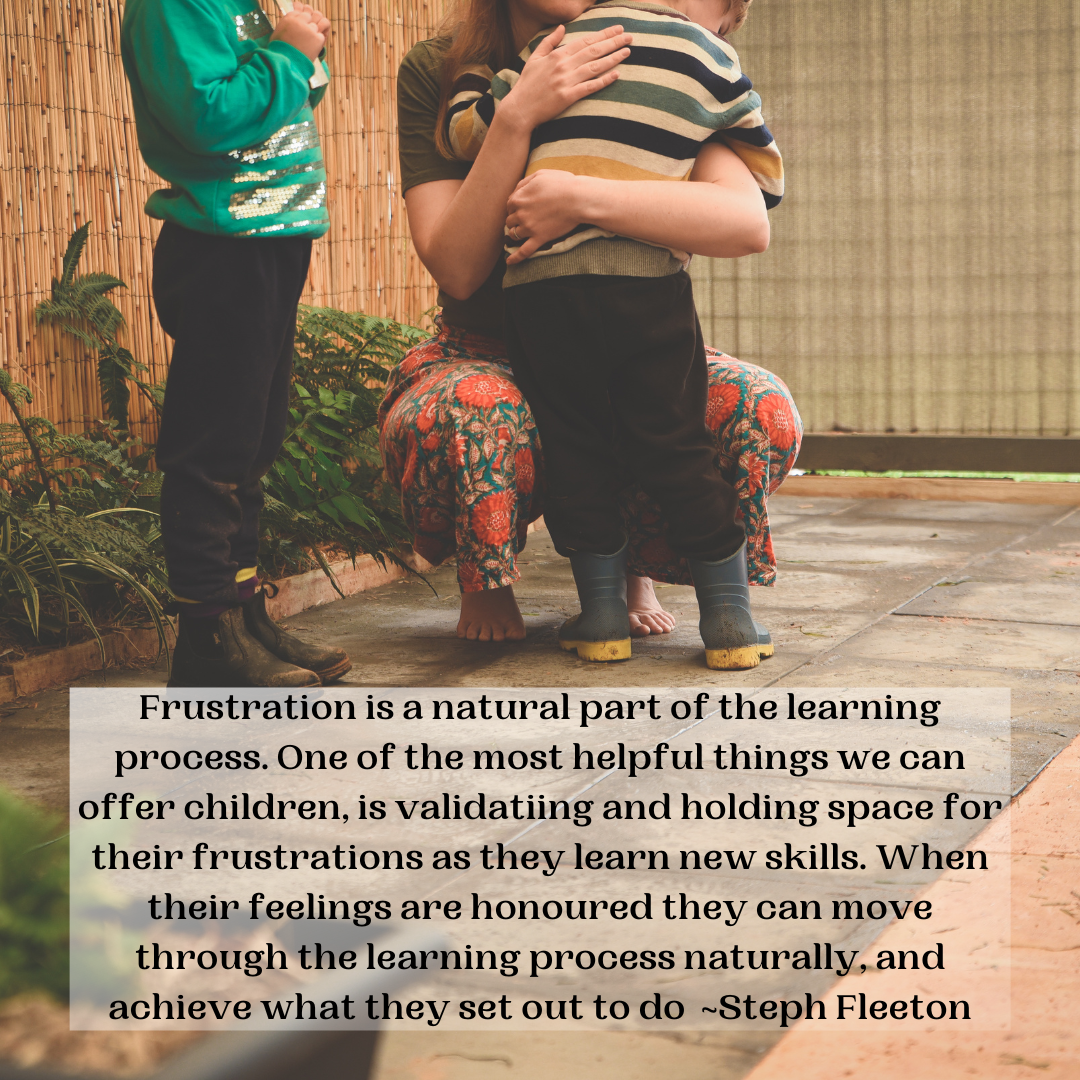Frustration is a Natural Part of the Learning Process
When we witness frustration in someone else, whether that be child or adult, we often feel the urge to jump in and fix whatever caused those frustrated feelings.
We see the feelings of frustration expressed in behaviour; throwing, hitting, crying, raging, tantrums, screaming.
When we witness frustration in someone else, whether that be child or adult, we often feel the urge to jump in and fix whatever caused those frustrated feelings.
We see the feelings of frustration expressed in behaviour; throwing, hitting, crying, raging, tantrums, screaming.
Frustration can be hard for us to face, both within ourselves and our children. Let’s acknowledge how challenging it can be to see the struggle, the tears, the tantrum that come when a person feels so overwhelmed by the frustration of something not working.
Frustration can be beautiful, empowering and is a natural part of learning.
Every new skill and milestone we set out to achieve naturally comes with frustration.
In our own lives it may appear when we start a new job and feel completely inadequate, of starting a new hobby.
We see it in our children.
I witness frustration every day in children.
My younger son was trying to build something particular with his lego, it just wouldn’t work. He screamed, threw the pieces across the room and called it all “stupid.”
I could have stepped in and built it for him, or done the puzzle for the 3yo, or put the shoes on the 4yo who has done it many times by himself before.
Who’s needs would I be serving though if I did that?
How would each of these children learn to build and solve if someone else did it all for them?
When a child sees an adult doing something for them, they have been struggling with, it can raise feelings of incompetence, worthiness, not good enough.
When we step in to stop the frustration and the tantrum, we are also showing children, through our actions, that we don’t believe they can do something themselves.
Often, we are meeting our own adult needs: not having the capacity to hold space for another tantrum, or maybe when we were children our learning frustrations were never acknowledged and someone stepped in to complete the task for us. Meaning we have an unfinished need, to complete certain things for ourselves.
In those moments of pure frustration, rage and crying, one of the most helpful gifts we can offer our children is to hold that space for them.
“I see you really wanted that lego to go together a certain way and it just wouldn’t work.”
“I can see you working so hard on that puzzle and the pieces just won’t go together.”
“That shoe is having a hard time getting on your foot.”
Time and time again, I observe the power of holding space for the frustration because after those feelings have been released through crying and raging, that child will easily complete the task they originally set out to do. And the best part is the big smile and empowerment they feel within themselves “I did it all by myself!!”
You stand there and share in their joy, in their power, in their success.
Holding space for ALL the feelings can be the most powerful gift you give yourself, others and your children.
Stay tuned for using play as another powerful way to move through frustrations in childhood.
